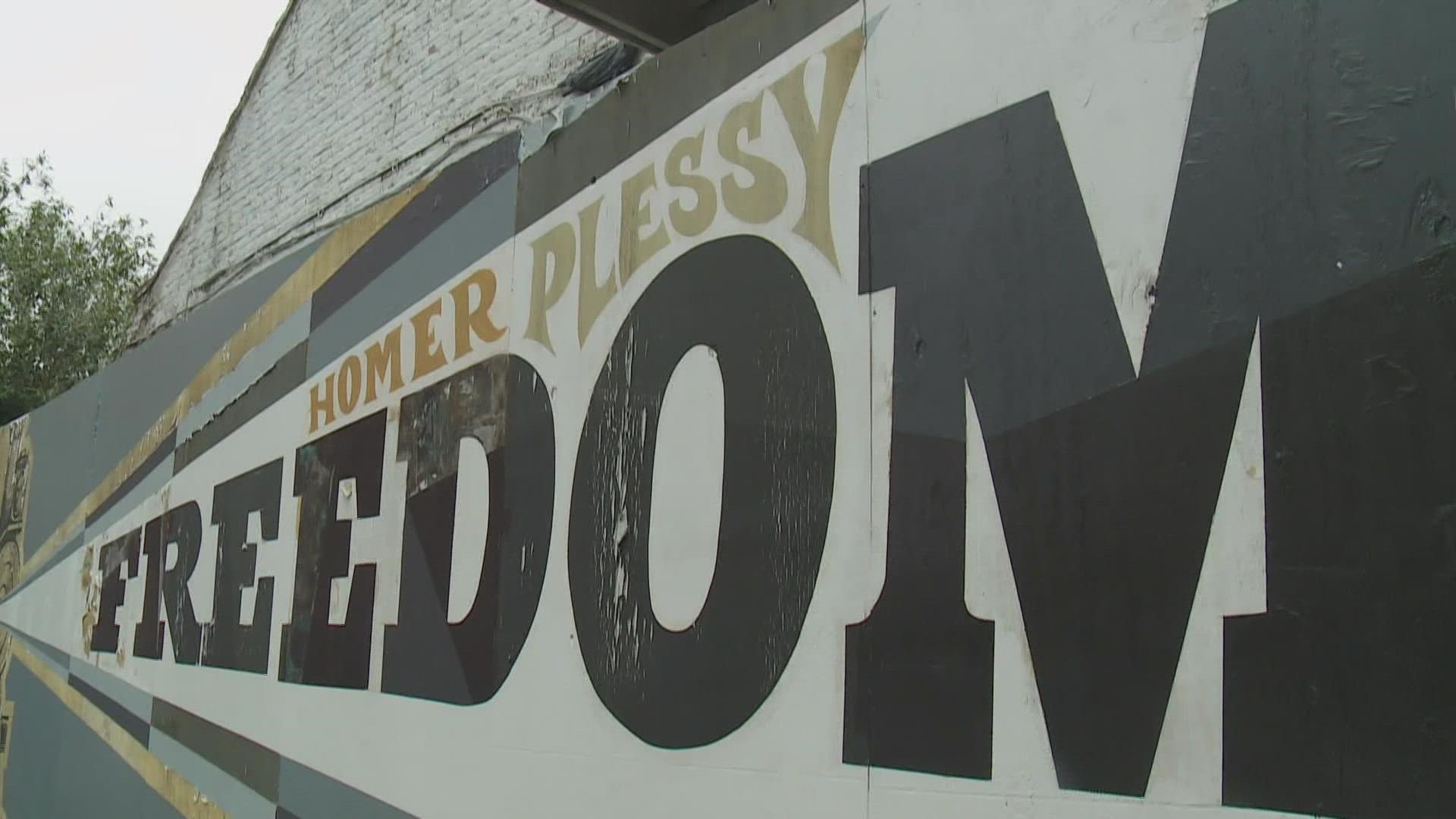NEW ORLEANS — It took the Louisiana Pardon Board less than 15 minutes to correct a 125-year-old wrong.
The board voted unanimously on Friday, to clear Homer Plessy’s record for refusing to leave a “whites-only” train car in New Orleans.
Plessy pleaded guilty to violating the Separate Car Act and was fined $25.
Orleans District Attorney Jason Williams spoke in favor of the pardon.
“There is no doubt that he was guilty of that act on that date, but there’s equally no doubt that such an act should have never been a crime in this country,” Williams told board members. “This is something that is not just important to Mr. Plessy’s legacy, to this city and to the state, I believe it is something that is important to this country at a very, very difficult time.”
The Plessy case went all the up to the U.S. Supreme Court.
In Plessy versus Ferguson, the high court upheld the constitutionality of Jim Crow laws mandating segregation under the “separate but equal” doctrine.
Plessy died in 1925 with the conviction on his record.
Decedents of both Plessy and John Howard Ferguson, the judge who oversaw the case in Orleans Parish Criminal District Court also testified at the hearing.
They spoke with WWL-TV after the hearing.
For my family, I’ve spoken to several family members, and they are extremely happy that this is happening,” said Keith Plessy, Homer Plessy’s great-great first cousin.
“I am so proud to be part of this history and I look forward to the changes in our criminal justice system based on such a positive decision today,” said Phoebe Ferguson, Judge Ferguson’s great-great-granddaughter. “We have the opportunity to have a very, very positive end of this story, that kids can make a real difference.”
Plessy and Ferguson started an educational foundation to teach young people how they can learn from the past to create a more equitable future.
DA Williams said he was so moved by the pardon board’s recommendation, he cried after the vote.
“This was just the right thing to do,” Williams said. It should have happened a long, long time ago.”
Williams added he is proud to be a part of this moment in time. His office helped submit the pardon application
“It really is an exciting teaching moment for the young people of this community and the young people of this country to look at the zeal with which the state of Louisiana was trying to separate black people from white people.”
Former New Orleans Mayor and National Urban League President Marc Morial called the board’s decision “long overdue.”
“Imagine if Homer Plessy had won,” Morial said. “We would not have had some 70 years of racial division. We would not have had the system of segregation, separate water fountains, buses, schools, public facilities. We would not have had the levels of disparity in health and criminal justice and economic life that we experienced because that ruling sanctioned unequal.”
Morial said the city needs to find some way to recognize Plessy for his place in history.
“I do believe while there’s a street named after Mr. Plessy in New Orleans, near where he boarded that train. I think that he is due for a greater level of recognition. I’m not sure what it is, but Homer Plessy’s name should be known by every schoolchild, and he should be known and understood as a freedom fighter, as a patriot, as one who fought for justice and equality.”
The decision now goes to Governor John Bel Edwards who will have the final say on Homer Plessy’s pardon. The governor was traveling on Friday. According to a spokesperson, he looks forward to receiving and reviewing the board’s recommendation upon his return.
Charisse Gibson interviewed Homer Plessy's descendants in 2020.

